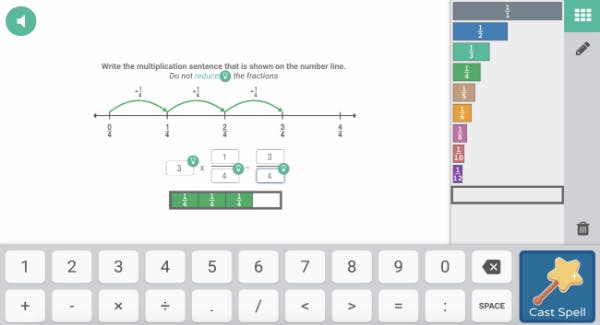107 Report Card Comments to Use and Adapt

Just about every teacher agrees: report card comments are important to provide insights and next steps to students and families. But there are few who actually look forward to writing them.
Because every instructor knows working under tight deadlines to create upwards of 20 unique and detailed reports at the end of the year or term isn’t exactly straightforward (or particularly fun). That's especially true in the era of distance learning.
And while no one at your school knows your students better than you do, writing valuable report card comments for each of them can be a huge challenge.
That’s why we created a list of 107 sample report card comments — starters to help you find ideas, inspiration, and insights while writing your own report cards.
The 107 report card comments in this list will help you:
- Instill a growth mindset in students
- Build stronger home-to-school connections
- Write stronger leads and use livelier language
- Choose the right phrasing when writing positive and constructive report card comments
Report card comment starters
You'll notice that the report card comments below can act as a springboard for more fully developed ones. But don't worry, using them you'll be able to take some of these one-liners and turn them into insightful and actionable next steps!
For example, you'll be able to take a 1st grade number sense comment like "Your child is able to add and subtract numbers up to 20 using various manipulatives" and transform it into:
Your child is able to add and subtract numbers up to 20 using various manipulatives. This was evident when he was working independently to solve a real-world problem by adding toys in the classroom toy bin. As a next step, they should continue to add to larger numbers to encourage his skills. You can support him by asking him to add his own toy piles at home.
Or taking a responsibility-related learning skill comment from "Your child is able to take responsibility for her own actions both in and out of the classroom" to:
Your child is able to take responsibility for her own actions both in and out of the classroom. She often checks her agenda and day planner to make sure she has all of the necessary materials to complete work at home before leaving. During indoor recess, she takes time to tidy up everything she was playing with.
Notice the difference?
Compared to a single number or letter grade, report card comments can provide even more value to your students and their families. In other words, a number or letter or grade captures the what, while an accompanying comment captures the how.
Depending on the age group or grade level you teach, a letter or grade letter might be enough. However, research in Phi Delta Kappan, the professional journal for educators, suggests:
Comments that identify what students did well, what improvements they need to make, and how to make those improvements, provided with sensitivity to important contextual elements, can guide students on their pathways to learning success and ensure that all learn excellently.
Gather insights into student performance all year long and make report card writing easier with Prodigy, the adaptive math game that students love.
Learning skills (positive comments)
- ________ is confident, positive and a great role model for his/her classmates.
- ________ is frequently among the first to help and mentor other classmates. He/she is a valuable part of the classroom.
- ________ has shown excellent ability to set goals and be persistent in achieving them.
- ________ is interested in his/her own learning, listens attentively, and makes a solid effort to avoid distractions that could interrupt the learning process.
- ________ is accountable and responsible. He/she makes smart decisions, admits mistakes and listens to opportunities to improve.
- ________ relates well to classmates and is appreciative of different perspectives and experiences.
- ________ manages his/her emotions maturely and responds to feedback appropriately.
- ________ always looks for ways to be helpful in the classroom.
- ________ is dependable and reliable, follows directions effectively, and follows through on his/her commitments to him/herself and others.
- ________ is thoughtful, insightful and thorough in written and verbal communication, and has a talent for expressing his/her ideas clearly.
- ________ works well with classmates in group work and often takes a leadership role.
- ________ shows a positive attitude with classmates in group projects and activities, and both takes and gives suggestions and directions effectively.
- ________ shows maturity when solving problems with classmates and uses good communication.
- ________ excels at applying what he/she learns in the classroom to real-world and real-life situations.
- It has been a pleasure to have _______'s enthusiasm, positivity and maturity in my class.
- ________ is an enthusiastic member of the class and shows a willingness to learn.
- ________ shows responsible behavior, works well with a group and shows appreciation for the efforts of classmates.
- ________ is focused during classroom activities and willingly participated in class discussions.
- ________ performs independent work with confidence and focus.
- ________ works independently and takes pride in work done well.
- ________ is focused in class and willingly participates in group discussion.
- ________ is very conscientious and shows excellent effort and care with daily work.
- ________ demonstrates a willing and conscientious effort in his/her daily work.
- ________ shows a conscientious effort to learn.
- ________ has done a great job facing and overcoming big challenges this year. Please continue to nurture and encourage this behavior over the summer.
- ________ shows responsibility and follows directions whenever they are given.
- ________ listens to and follows directions precisely and attentively.
- ________ follows directions promptly and accurately.
- ________ is an active participant in class.
- ________ is a hard worker who calmly perseveres through challenging topics.
Learning skills (needs improvement)
- ________ is encouraged to demonstrate more responsible attitudes and behavior in the classroom.
- ________ needs to show more appropriate behavior when interacting with classmates.
- ________ needs to pay attention to the use of appropriate language at all times
- ________ requires encouragement to listen attentively during group sharing times.
- ________ needs to listen to directions more attentively during lessons.
- ________ would benefit from showing a greater desire to contribute ideas in class.
- ________ needs frequent reminders to be attentive during instructions and lessons.
- ________ needs to improve his/her cooperation in group settings. He/she should work on voicing feelings and opinions and listening to others.
- ________ needs to improve his/her work with others. He/she must ensure to accept a share of the work when participating in a group assignment.
- ________ needs to improve on working independently and be sure to ask for assistance only when it is needed.
- ________ often struggles to focus in class, which harms his/her ability to engage well with class activities and assignments.
- ________ is encouraged to use time wisely to finish tasks in the time required.
- ________ is encouraged to be more responsible in completing tasks without needing regular reminders.
- ________ needs to show by the quality of work and use of class time that he/she is properly engaged in the learning process.
- ________ consistently needs reminders to focus on time management.
- ________ needs to follow classroom rules more closely throughout the school day.
Math (general comments)
- ________ is having considerable difficulty with math. I recommend he/she work on studying ________ and ________. This extra practice will help him/her feel more relaxed when doing math in the classroom. Please contact me if you need materials to get him/her started.
- ________ has a good understanding of all math concepts taught so far this year. He/she continues to turn in excellent assignments and especially enjoys hands-on math activities.
- ________ has a positive attitude towards math but continues to have trouble in a few key areas. He should practice every evening at home. Areas that need extra attention are ________ and ________ .
- ________ demonstrates a good understanding of all math concepts studied and communicates with clarity and good justification of reasoning.
- ________ needs to work on increasing his/her speed in math facts. He/she should continue with daily practice with a focus on addition, subtraction, multiplication and division.
- ________ seems to need continuous encouragement in math. He/she continues to struggle with basic math concepts for his/her grade level.
- ________ is having a difficult time in certain areas of math. Areas in need of extra work are ________ . Working on these problem areas every night would help improve his/her learning outcomes.
- ________ is struggling to keep up in math. He/she could benefit from practicing the multiplication table and should also continue to practice the long division process.
- ________ is easily distracted during math lessons and behavioral issues are interfering with his/her learning. We will be working on more difficult subjects and he/she will struggle if he/she does not pay attention in class.
- ________ is having trouble with math tests. He/she does well on assignments, but does not seem to retain information for tests. I always give a week’s notice before tests, so please be sure ________ studies and adequately prepares for them as they approach.
Addition and subtraction
- ________ is able to calculate addition and subtraction facts to 18 with confidence and accuracy.
- ________ is becoming more able to calculate addition and subtraction facts to 18 with confidence and accuracy.
- ________ requires more time and practice in calculating addition and subtraction facts to 18
- ________ needs to put more effort into learning to calculate addition and subtraction facts to 18.
Skip counting
- ________ is able to skip count forward and backward by twos, fives, tens, and hundreds to complete short patterns.
- ________ is learning to skip count forward and backward by twos, fives, tens, and hundreds to complete short patterns.
- ________ needs practice with skip counting forward and backward by twos, fives, tens, and hundreds to complete short patterns.
- ________ needs considerable practice with skip counting forward and backward by twos, fives, tens, and hundreds to complete short patterns.
Place value
- ________ is able to demonstrate place value concepts to give meaning to numbers from zero to 1000, identifying ones, tens, and hundreds.
- ________ is developing an understanding of place value concepts to give meaning to numbers zero to identifying ones, tens, and hundreds.
- ________ requires more time and practice to demonstrate place value concepts to give meaning to numbers 0 to 1000, identifying ones, tens, and 100s.
Comparing numbers
- ________ is able to compare numbers to 1000 using terms such as greater or less and greatest or least.
- ________ is learning to compare numbers to 1000 using terms such as greater or less and greatest or least.
- ________ requires support to compare numbers to 1000 using terms such as greater or less and greatest or least.
- ________ demonstrates a limited understanding in comparing numbers to 1000 using terms such as greater or less and greatest or least.
Addition with regrouping
- ________ can demonstrate and explain the process of addition of whole numbers up to 100, with and without regrouping.
- ________ requires ongoing support to demonstrate and explain the process of addition of whole numbers up to 100 with and without regrouping.
- ________ requires considerable attention and individual instruction to demonstrate and explain the process of addition of whole numbers up to 100 with and without regrouping.
Word problems (math)
- ________ is able to complete word problems using one- and two-digit addition, showing his/her work and writing a full sentence answer.
- ________ is becoming more confident in his/her ability to complete word problems using one- and two-digit addition, showing his/her work and writing a full sentence answer.
As we move into language and literacy, the following sections include starter report card comments which cover reading, writing, oral communication and critical thinking skills.
Language arts (general)
- ________ ’s (comprehension, spelling, reading) has greatly improved, but he/she still needs extra work in (comprehension, spelling, reading). Please contact me if you need supplemental learning materials to use at home for practice.
- ________ is conscious of putting care into his/her daily writing work, and frequently goes beyond the minimum requirements for assignments.
- ________ has trouble with his handwriting. I believe he/she can form letters well, but has to slow down and take a little more time. Neater handwriting will improve his/her schoolwork overall.
- ________ makes a good effort to make his/her handwriting legible. He/she is able to print on the lines, use good spacing, and form letters correctly.
- ________ needs to focus on her spelling. More improvement is needed in the areas of (dictation, weekly spelling tests, sentence structure). Daily practice at home will help improve his/her results.
- ________ shows the ability to quickly use spelling, punctuation and grammar rules that were recently taught. He/she is able to quickly learn new skills and is eager to apply them to his/her writing.
- ________ is having considerable difficulty with reading, particularly with fluency and comprehension.
- ________ speaks well in front of the class, but requires improvement in written language. He/she is having trouble with (dictation, copying words correctly, story writing, creating logical sequences). Further practice is needed in this area.
- ________ continues to make excellent progress in spelling and reading. He/she works hard to submit work that is free of grammatical errors.
- ________ has difficulty remembering previously discussed writing skills and often makes errors with punctuation, grammar, and overall sentence structure. Basic writing skills need improvement.
Reading responses
- ________ is able to offer direct responses to his/her readings and supports ideas with sound reasoning and specific examples.
- ________ is learning to offer more direct responses to her reading experiences supported by reasons, examples, and details.
- ________ needs frequent support to offer direct responses to his/her reading experiences supported by reasons, examples, and details.
Reading comprehension
- ________ shows good ability when completing reading comprehension tests.
- ________ would benefit from extra practice with reading aloud and discussion of content.
- ________ consistently demonstrates comprehension of short spoken texts by answering questions, and explaining the events described.
- ________ consistently reads grade-level material independently.
- ________ uses good editing skills and correctly places capitals, quotation marks, question marks, apostrophes, commas, and periods.
- ________ is doing a good job of breaking a story into paragraphs
- ________ determines various forms of writing and identifies important ideas through the development of insightful questions and answers.
- ________ is able to analyze character actions, story plots, and shows strong fluency with reading.
Response journal
- ________ uses correct spelling, grammar and punctuation when writing simple sentences.
- ________ is encouraged to show increased attention to the use of correct spelling, grammar and punctuation with general writing skills.
- ________ needs more time and practice in the use of correct spelling, grammar and punctuation with general writing skills.
- ________ requires considerable assistance to achieve the correct spelling, grammar and punctuation when writing simple sentences.
Note taking
- ________ shows an excellent understanding of note taking from lectures and readings in preparation for tests and assignments.
- ________ requires ongoing support to develop an understanding of note taking from lectures and readings in preparation for tests.
Distance learning
- ________ was very engaged and focused during distance learning activities, and participated in class discussions.
- ________ stayed motivated to complete assignments during distance learning, and turned in all required materials on time.
- ________ needed some extra prompting to stay engaged during online lessons, but participated well in discussions when called upon.
- ________ modeled good online learning behavior for other students.
- ________ was disruptive during online learning and did not meaningfully participate in class discussions.
- ________ handled technical problems well and was always prepared.
- Although he/she couldn’t always access a device, _________ consistently completed online assignments and asked thoughtful questions.
- ________ should ask more questions during online discussions to avoid confusion later.
- ________’s attendance during online lessons was infrequent and assignments were not always completed.
- ________ worked well independently and in a group setting during distance learning activities.
- ________ is excellent at completing distance learning activities independently, but struggled to engage with his/her classmates during breakout sessions or class discussions.
- ________ is a technology superstar! He/she rarely needed assistance and even helped other classmates troubleshoot issues.
- ________ asks good questions and always reaches out proactively when he/she needs help with an assignment or lesson.
Tips for teachers to write more effective student report card comments
1. Give yourself extra time and start writing comments early

Somewhere around the halfway point to your deadline for report cards, you make your best effort to use time at the end of each week to reflect — and jot down notes — about your students’ performance and class week.
What are their strengths and weaknesses? How are their social skills developing with classmates? How is their class participation - are they an enthusiastic learner? Have they shown great improvement in one particular subject area? Are homework assignments getting done? Have any new challenges come up that affect learning?
Even just a few minutes of note-taking in the weeks preceding report card deadlines will help to ease your stress when the time comes to write your final comments.
Moreover, having a dated log of information detailed throughout the school year will help you remember how students are performing throughout each week, which can be valuable information come parent-teacher conference time.
This will also help to engage and reassure parents who want relevant and detailed commentary about their child’s performance at school.
2. Use free, curriculum-aligned apps for teachers

Use Prodigy to write insightful report cards with a minimum of hassle. Prodigy Math is an engaging math adventure for students where success depends on correctly answering adaptive math questions.
As students play, you’ll get insights into:
- Which skills students are practicing
- How far they’ve progressed through the curriculum
- What they’ve mastered and where they need more support
Use one of Prodigy’s eight reports to track student progress throughout the year. When the time comes to write report card comments, you’ll have detailed reports on all your students’ achievements.
Just getting started with Prodigy? No problem! The first time students explore the world of Prodigy Math, they’ll start completing the Placement Test — without even knowing. Once they’re done, you’ll have a snapshot of the grade level they’re at, what they know and specific skills they still need to work on.
Spend more time teaching and less time grading
Prep for standardized tests, deliver adaptive skill practice or test students on a new skill — all while they play Prodigy Math, Prodigy English, or both!
3. Be encouraging, informational and professional

Although every report card cannot be glowingly positive, do strive to write in an encouraging and informational tone. As you write constructive report card comments, use encouraging language that focuses on the student’s opportunity for improvement.
For example, instead of describing a student struggling with listening as a “bad listener,” remark that the student “would benefit from listening more carefully.”
If appropriate, frame a negative comment in terms of what students are doing well -- and consider how this more successful characteristic can help them bolster performance in other areas.
4. Use a consistent format

Lead your report card comments with the positive comments, followed by areas that need more attention.
Choosing the right format for reporting information will simplify the entire process, while resulting in a clearer and more organized final product.
If you are unclear about your school’s format for report cards, request samples or consult with other teachers or staff members to clarify.
5. Be honest

Being open and honest about a student’s performance requires tact and consideration with regard to how you express those comments. Be transparent, and remain mindful that your goal is to improve your students’ learning experience.
Openness and honesty are key to ensuring that experience is the best it can be. If possible, discuss what intervention strategies you can use to help improve the student’s learning outcomes.
If there is a problem, most parents will be grateful to you for telling them and will want to help you correct it as soon as possible. Many problems that show up at school are also problems noticed at home, so your comments will not surprise parents. Ideally, at some point prior to receiving the progress report, parents have already discussed the problem with you.
6. Move on if you get stuck

If you get stuck completing the comments for a particular student, move on to your other students and return to it later. You will likely have more trouble completing comments for students who have multiple areas needing further improvement and attention.
Feel free to move on and return to those students periodically or as you find the right language to express your insights.
7. Keep parents and guardians in mind

While every report card comment is ultimately about your student, think of your students’ parents or guardians as much as possible and offer suggestions for their participation.
In fact, if you can, keep parents up to date on an ongoing basis. This will help ensure they don't get caught off guard by any of your comments.
As you make note of your students’ strengths and weaknesses, endeavor to include practical insights into how parents can involve and support their child at home. If possible, make reference to how you use differentiated instruction to support the student in question.
Simple examples of tips for parents include:
- "Encourage your child to read. It doesn't have to be on your own either. Dedicating time before bed to read together can help make it seem like less of a chore."
- "Find homework help for your child if needed. Myself and other parents who are also getting homework help for their child are great resources to get started."
- "Ensure that your child completes their homework by creating a homework routine with your family where incentives like TV or computer time come after homework."
- "Help your child with organization skills at home. If a room in your house could be tidier, try using that as an opportunity to sort things like toys or dishes and utensils."
- "Help your child prepare for math tests by focusing their skills in addition and subtraction. If they don't like studying with traditional worksheets, try a digital game-based learning tool to help get them excited about the process."
As high school educator and teaching comprehension expert Anne Goudvis writes in her book Strategies That Work:
It is important that you include the parents in your comment so they know the child’s education is a joint mission. Sometimes you need to sound firm so that parents know you need their help and that you will not allow their child to continue inappropriate behavior.









